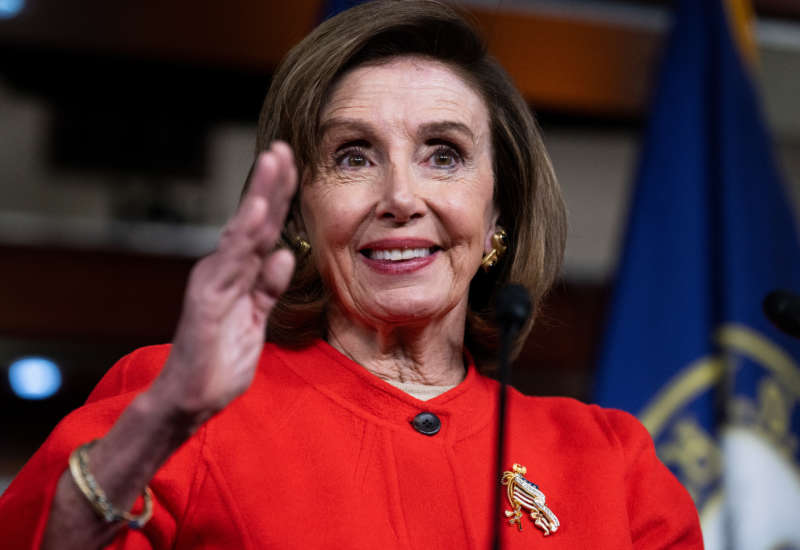On Tuesday, Speaker of the House Nancy Pelosi (D-California) announced that she will run for another term in Congress – without specifying whether she will seek to remain leader of the Democratic caucus in the House beyond this year’s midterms.
“I am running for reelection to Congress,” Pelosi said in a video message on Twitter announcing her 19th congressional run.
Pelosi said that this year’s election was “crucial,” pointing to the attack on the U.S. Capitol building last year along with the assault on voting rights in GOP-led statehouses across the country.
“Nothing less is at stake than our democracy,” she added.
Pelosi, who has been a member of Congress since 1987, didn’t specify whether she would try to remain Speaker of the House should Democrats retain control of that legislative chamber in this year’s midterms, or whether she would seek another leadership position within the Democratic caucus if they lose. Pelosi has been the Speaker of the House since 2019, and previously served as Speaker between the years 2007 and 2011.
In late 2018, Pelosi made an agreement with her party that she would limit her tenure as Speaker to her current term unless two-thirds of the Democratic caucus were in agreement that she should serve again. If Democrats are able to retain the House after this year’s midterms, a new leader would likely have to take Pelosi’s place.
Polling shows that most Americans want a new Speaker should Democrats successfully retain control of the House. In an Economist/YouGov poll conducted from January 22-25, just 20 percent of likely voters said Pelosi should remain Speaker if Democrats win the midterms, while 47 percent said that they want another Democrat to be in charge. Among Democratic voters, however, a plurality (46 percent) said they want Pelosi to remain Speaker, while just 28 percent said they want someone else in the party to take on the role.
The results of the poll are not encouraging for Pelosi should she attempt to renege on her agreement or try to attain the two-thirds support from her party’s caucus. However, she does poll significantly better than her counterpart in the House, Rep. Kevin McCarthy (R-California), who serves as House Minority Leader; when a change in congressional leadership takes place, the lawmaker serving as House Minority Leader is likely to become the Speaker of the House.
When the Economist/YouGov poll asked whether McCarthy should be Speaker if Republicans win control of Congress, only 11 percent of likely voters said that he should assume the role. Fifteen percent said that former President Donald Trump should be named Speaker (a far-fetched but possible outcome), while 41 percent said that another Republican should be in charge. Among Republican voters, just 19 percent said McCarthy should be the next Speaker, while 33 percent preferred Trump and 26 percent wanted someone else in the role.
The poll also indicates that the midterm races will be contentious. When asked which party they plan to vote for in this year’s contest, 42 percent of respondents said they plan to vote for a Democrat while 38 percent said their preference was for the Republican on the ballot in their home district.


